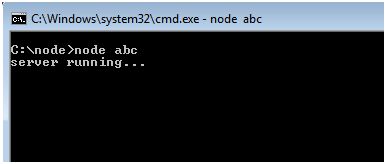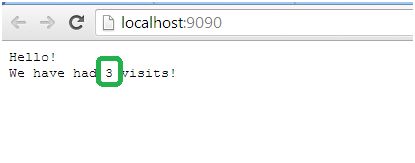
January 6, 2015 05:02 by
 Peter
PeterIn this article we will actualize a basic hit counter application with a couple of lines of code. We should examine what we truly need to do. We might simply want to actualize a basic hit count for our web server. Case in point, we realize that in ASP.NET application variables are comprehensively shareable and static in nature, as it were if a client changes a worth then all clients will see the changed variant.

In our case we will count the quantity of hits in our web server, and trust me, its much less difficult than you would anticipate. I will assume that the Node.Js server is already up and running in our system. Let’s take a look at the following code.
var http = require('http');
var userCount = 0;
var server = http.createServer(function (req, res) {
userCount++;
res.writeHead(200, { 'Content-Type': 'text/plain' });
res.write('Hello!\n');
res.write('We have had ' + userCount + ' visits!\n');
res.end();
});
server.listen(9090);
console.log('server running...')
The illustration is exceptionally straightforward with our past Hello World case. In this case we have pronounced one global variable that is including the quantity of hits our web application. In the server body, from the beginning we are increasing the variable worth and afterward we are sending the quality as a reaction in the wake of setting 200 reaction statuses.
We should run the application. Go to the Command Prompt and explore to your server area. At that point fire the summon:
hub <server filename>

We are seeing that our node server is running. Presently we will go to a program and attempt to get to the server.

At the outset hit, we see that its demonstrating that this is the first HTTP solicitation to our server. Presently, in the event that we hit a few more times then we will see that the number has changed as in the accompanying.

It's demonstrating the quantity of HTTP demands after the node server was up and running. The inquiry may ring a bell, for every single hit, why is the variable not introduced? The reason is, the node.js prepare any work in occasion circle system.
When we make the server and it is up, it will never stop and it will keep on listening for events. For our situation the server is listening for request and response events. Along these lines, when we make one HTTP demand , it executes the code that is composed inside the occasion scope and since we have announced a variable out of this extension, it is never instated the second time.
Conclusion
In this short article we have figured out how to execute a hit counter in a HTTP server utilizing a couple of lines of code. I trust this useful illustration will support you in your node.js day. Happy Coding!